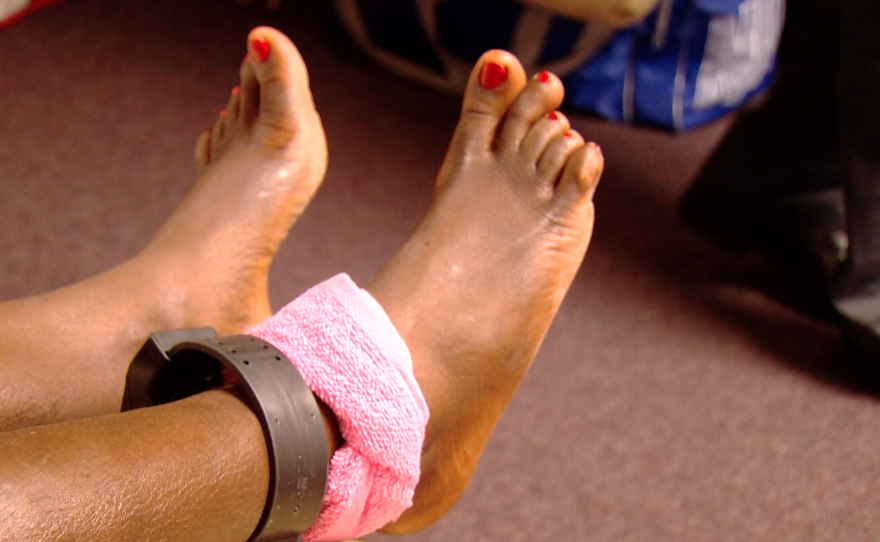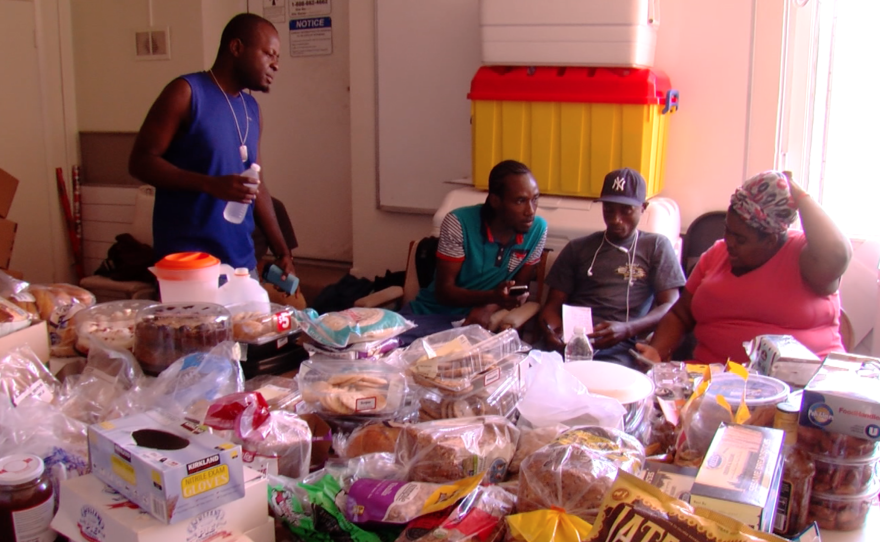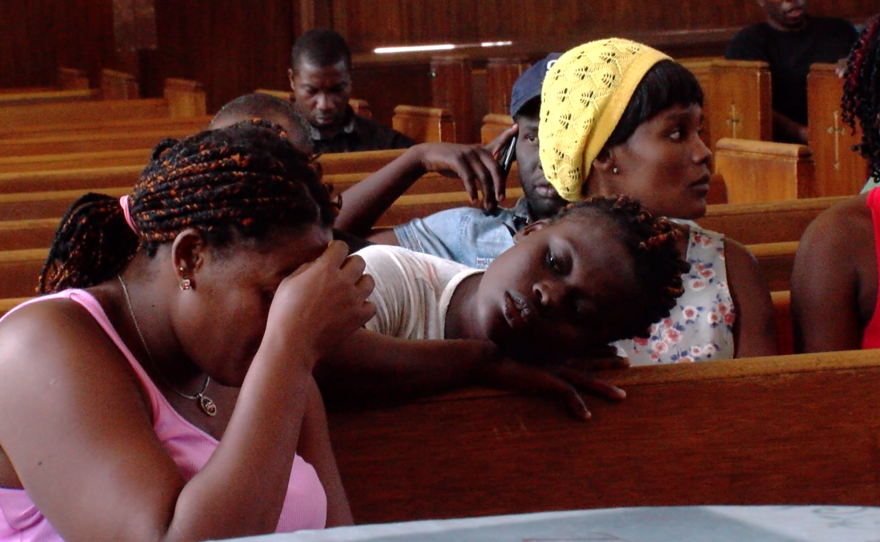A church in Normal Heights is offering shelter to an influx of Haitians crossing the U.S.-Mexico border.
“We have become a virtual refugee camp, right here in the heart of San Diego,” said Bill Jenkins, executive director of the United Methodist Christ Ministry Center.
Haitians sleep on donated beds, church pews or the floor at the center, which has helped more than 800 Haitians since May. Many seek asylum. Most come from Brazil. They had moved there after the devastating 2010 earthquake in Haiti, but the South American nation has since descended into political and economic turmoil.
Before the ministry center opened its doors, the Haitians were forming a large homeless community on the streets of downtown San Diego. They were released by U.S. Immigration and Customs Enforcement with no money and in many cases lacking the ability to speak English. Now, officials are bringing Haitians to the church.
Jenkins emphasized that the Haitians aren’t here illegally. They came through U.S. Customs and Border Protection, which transferred them to ICE custody. Lacking enough beds at detention centers for all of the Haitians, ICE releases them after giving them a date for an immigration court hearing.
Among the Haitians at Jenkins’s center is Jean Ricardo Beauvior, who like the others wore a black tracking device on his ankle over brown flip-flops.
“They placed this device on me, so they can find me,” said the 27-year-old Haitian, referring to ICE. Like 90 percent of the Haitians who are crossing the border from Tijuana, Beauvoir plans to head to Miami, where he has family. Staff members at the center help between 10 and 20 Haitians buy plane tickets per day, usually using money sent by relatives through Western Union.

“I plan to go to school, so I can learn English and a skill so I can work,” Beauvoir said in French.
Three months ago, Beauvoir embarked on a journey through some of the world’s most dangerous countries, like El Salvador and Honduras. He was hunted by corrupt police and drug traffickers. He fought delirium from dehydration and weakness from hunger. He saw people die of thirst. Others drowned in gushing rivers.
“We lost all hope, because it was truly terrible,” Beauvoir said.
In Nicaragua, officials weren’t letting Haitians pass at all, he said. Beauvoir made it only because he somehow evaded being robbed of all his cash. He said life at the ministry center is worlds away from what he experienced on his way here.
“They give us a place to sleep here, which is very helpful, because there is nowhere else for us to go, because hotels are so expensive here,” he said.
To pass the time, the Haitians hold impromptu services in the church, playing piano, singing and praying. The migrants eat food donated by Catholic charities — dozens of canned items, boxes of fruit and more.

The migrants said they are crossing through San Ysidro instead of elsewhere because they have heard it's an effective route.
“That’s the information you get from people who already crossed, if you understand,” said Steave Pierre, a 37-year-old Haitian.
Pierre, an electrician, said he plans to find work in Miami and send money back to his daughters in Haiti.
“Family is the number one priority for Haitians,” he said. “It’s a different philosophy.”
Before arriving in San Diego, Pierre stayed several days in Tijuana as immigration officials at the San Ysidro Port of Entry struggled to process Haitian newcomers. Hundreds of Haitians were sleeping on the sidewalks. Some received food and a place to sleep at migrant shelters in Tijuana, such as Casa del Migrante.
Those shelters have been collaborating with Mexican immigration authorities to address the surge south of the border just as the United Methodist Christ Ministry Center is working with U.S. immigration authorities to address the influx once the Haitians cross into the U.S.
Jenkins said he has seen backlash for helping the Haitians, including threats of violence. He blames the polarizing political environment.
“There’s no more divisive word in the English vocabulary right now than the word immigration. I call it the ‘i’ word,” he said.
A passage in the Bible inspired Jenkins to help the Haitians. He summarized it: “I was hungry, I was thirsty, I was naked, I was sick, I was in prison, I was a stranger, and you welcomed me, you cared for me.”






